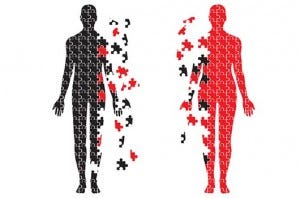The Edinburgh Healthy Chat Therapist
Here at my Edinburgh talk therapy clinic, my New Year resolve is to share some of my therapy and counselling ideas and advice on our Healthy Chat blog. So, in timely fashion, here are my thoughts on our great tradition to pledge a new year’s resolution:
What went through your mind as the bells rang in 2018?
Is it accurate to say that it was by any possibility a promise to surrender something? Cigarettes, chocolate, liquor? Take-away dinners? Retail treatment? Television or PC diversions? Betting? Biting your nails? Maybe, then again, it was a promise to start something, such as running or swimming, singing in a choir or being more friendly, or to pick up something, similar to a fit healthy body, or a six-pack torso, or a more beneficial bank account. It may have been to be more decisive at work, or to be more pleasant to your relative. Whatever it was, fourteen days down the line, how is it going for you? I might risk a figure that the individuals who picked a ‘surrendering something’ sort of determination will battle more than the individuals who started something or pick up something.
And how’s your New Year resolve bearing up?
Unfortunately, a shift in behaviour can often be short-lived unless a sound plan is in place as to what to do instead of the old and unwanted behaviour, or what is to be gained from the loss. This is because most of us have strong unconscious negative associations with words like ‘losing’ or ‘giving up’ or ‘quitting’: our brains don’t like loss, and don’t like a void where there used to be an activity. Loss is the opposite of gain, and acquisition is a core motivation in humans. Also, we have been (albeit perhaps unwittingly) conditioned to associate giving up with failure. A decision to ‘lose weight’ or ‘give up smoking’ is therefore immediately hindered, or hoist by its own petard, as my father would have said.
Another key thing to note here is that our brain is an expectation machine: it wants to be set tasks so that it can pursue and achieve them. The trick is to give our brains a positive goal, not a negative one, as it will pursue each with equal diligence. If you set your mind to not smoking, your brain will focus on smoking, and sooner or later the word ‘not’ will be forgotten. If, however, you set your mind to getting healthier, with cessation of the foul habit of filling your lungs with poison set out as a clear part of your health plan, you will have a much higher chance of success.
To take a similar vein with body weight, instead of resolving to lose weight, set out to gain that slim figure that you so desire, or find your waistline (that you know is in there somewhere because you saw it a decade ago!), or become fit and agile. The change in words is so simple it may seem insignificant, but the reframing of the resolution can make all the difference.
It’s worth bearing in mind that one session with an effective therapist or coach can help you to set out your goals for maximum effect and the ultimate positive result. Sometimes it’s invaluable to, in effect, “borrow another brain” for an objective perspective on what you are aiming to achieve.
One note of caution here is to make sure that the new activity or behaviour is not only positive, achievable and backed by sound reasoning, but is also a behaviour that you want in your life. I don’t mind admitting that (before I had studied psychotherapy and learned how our brain works) I once pledged to give up red wine, and rather unimaginatively decided to replace it with cranberry juice. By week three I had pretty much developed an allergy to cranberry juice and I subconsciously moved the ‘goalposts’ of my resolution from ‘give up’ to ‘give up for a month’ (another trick our brains are good at). On the first of February I fell upon a bottle of wine as a drowning man would a life raft.
Denial can take many forms and, if you go about it the wrong way, ‘giving up’ alcohol or cigarettes or ‘cutting down’ on foods can unnecessarily affect more of your life than you might think. Many folk who may feel they have overindulged over the festive season just choose not to go out because they will not know what to say when somebody offers them a drink or a bag of crisps. If you are ‘on the wagon’ for January then it’s no good floundering around wondering what to say when your friend is at the bar waving a wine glass at you.
But it is equally bad to stop going out: your New Year resolution wasn’t to deny yourself a social life. If ‘losing weight’ is your goal then it might feel easier to just not visit your Granny during January, because you know she will have a plate of leftover mince pies and Christmas cake on offer, and you haven’t the mental energy to turn it down. But not visiting her affects both of you in terms of your connection and attention needs — and you don’t want to abandon your Granny to a month of loneliness. Conversely, giving up computer games or TV is all fine and good unless it causes you to head out to the bar to fill the void with alcohol.
It’s useful here to borrow a technique well known to athletes, politicians and actors: mental rehearsal.
Work out in advance what you will say when someone offers you a cigarette, a beer or a portion of chips. If retail therapy is your poison, have a clear plan in place before those January sales catch your eye. Think it through and rehearse the words. Be absolutely clear in your mind. Hear yourself saying those words, “no thanks, I don’t smoke” or “no thanks, I’ve switched to a healthy diet this year” or, “let’s go ice skating instead of shopping this weekend”.
Conscious rehearsal is great up to a point, but those same athletes, actors and politicians will also be using visualisation to embed the desired mindset into their subconscious. My son can close his eyes and visualise how he wants to swim his race in a certain time. I used to use the same technique to visualise the time it would take me to complete a cross country course, and therefore where I could potentially speed up. Effective speakers take a moment in a quiet corner to visualise the calm, clear, confident authority with which they will deliver their speech. Visualisation makes use of one of the most powerful of our innate resources — our imagination — to generate images of the desired reality.
Reframing, visualising and rehearsing your own success are often the keys to achieving what you want, and to making your New Year resolution a permanent behaviour pattern in your life. A good therapist, counsellor or coach can help to kick start the process for you.









